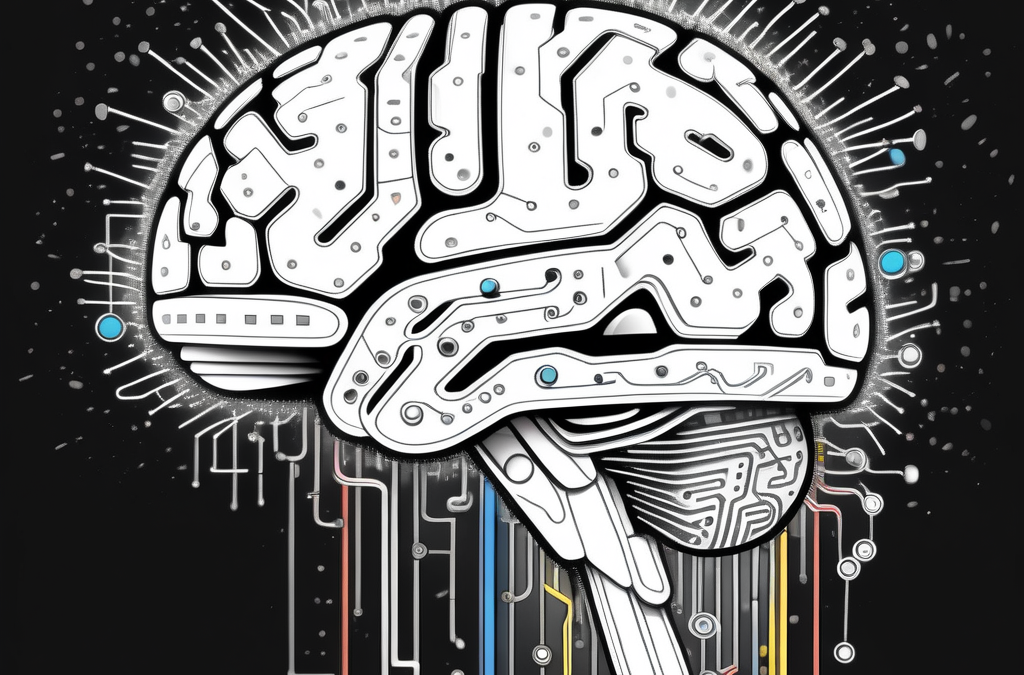Artificial Intelligence (AI) is an incredible field that’s changing the world around us. While it may seem like something out of a sci-fi movie, AI is already part of our daily lives, making things easier and more efficient. Whether you’re asking Siri for directions or getting movie recommendations on Netflix, AI is quietly working behind the scenes. This guide will help you understand the basics of AI, its types, real-world applications, and how you can dive into this exciting field.
What is Artificial Intelligence? Understanding the Basics
At its core, AI is the ability of machines or software to mimic human-like intelligence. This includes learning from experiences, reasoning through problems, understanding language, and recognizing patterns. Imagine a computer that learns similarly to how you do when practicing a new skill—this is the essence of AI.
Types of AI: From Narrow to General and Beyond
- Narrow AI: This is the AI we encounter every day. It’s designed to perform specific tasks exceptionally well, such as voice recognition in virtual assistants like Siri or Alexa. However, it struggles outside its specialty.
- General AI: This is the theoretical AI that researchers aspire to create. It would have the ability to understand and learn across various domains, much like a human. We’re not there yet, but advancements continue to be made.
- Superintelligence: This refers to an AI that could surpass human intelligence in nearly every area. While it’s an intriguing concept, it remains speculative and is not something we currently possess.
Key Concepts in AI: Simplifying the Jargon
Understanding AI concepts can help demystify the technology:
- Machine Learning: This is the process by which computers learn from data. For example, when trained with thousands of cat images, a computer becomes better at recognizing cats.
- Neural Networks: These are systems that mimic the human brain’s interconnected neurons, processing data and making decisions.
- Deep Learning: A more advanced form of machine learning that uses complex neural networks to analyze vast amounts of data, enabling tasks like facial recognition and language translation.
Real-World AI Applications: How It Impacts Our Daily Lives
AI’s presence is felt in various aspects of our lives:
- Virtual Assistants: Siri, Alexa, and Google Assistant use AI to understand voice commands, set reminders, and control smart home devices through Natural Language Processing (NLP).
- Social Media: Platforms like Instagram and Facebook utilize AI to personalize your feeds, analyzing your interactions to recommend content that matches your interests.
- Healthcare: AI can assist doctors by analyzing medical images (like X-rays), identifying diseases earlier and more accurately, and predicting health issues before they escalate.
- Autonomous Vehicles: Self-driving cars use AI to navigate, avoid obstacles, and make quick decisions by learning from vast amounts of road data.
Getting Started with AI: Resources and Projects for Young Innovators
For budding enthusiasts, there are plenty of resources to explore:
- Books: Start with engaging titles for beginners, such as AI Superpowers by Kai-Fu Lee or The Wild Robot by Peter Brown, which are insightful and relatable.
- Online Courses: Platforms like Coursera and Khan Academy offer free or affordable courses, allowing you to learn at your own pace with interactive projects.
- YouTube Channels: Check out channels like Code.org and Simplilearn for videos that simplify complex AI concepts and show real-world applications.
Easy Projects to Explore AI
Once you grasp the basics, start experimenting with these hands-on projects:
- Create a basic chatbot using platforms like Scratch or Python to understand how AI can interact with users.
- Learn programming through interactive challenges on websites like Codecademy, eventually moving on to more advanced projects, like designing a game that adapts to player behavior.
The Future of AI: Opportunities Awaiting Young Tech Enthusiasts
The future of AI is bright and full of possibilities. Industries like healthcare, finance, and entertainment are set to be transformed, creating opportunities for skilled professionals. Here’s how you can prepare:
- Build a strong foundation in mathematics and computer science, focusing on programming languages like Python.
- Embrace creativity and critical thinking to tackle complex challenges and make ethical decisions as AI technology evolves.
- Engage in discussions about ethical considerations in AI, such as data privacy and algorithmic bias, to help develop fair and responsible AI systems.
Conclusion
Your journey into the captivating realm of Artificial Intelligence is just beginning. AI is not merely a futuristic concept; it’s an integral part of our lives today. As technology continues to evolve, exciting opportunities await those who explore this field. Stay curious—dive into resources, engage in hands-on projects, and connect with others who share your passion. As the next generation of innovators, you hold the power to influence the future of AI. The adventure is just starting, and you could be the one to unlock the next breakthrough in this thrilling field!


